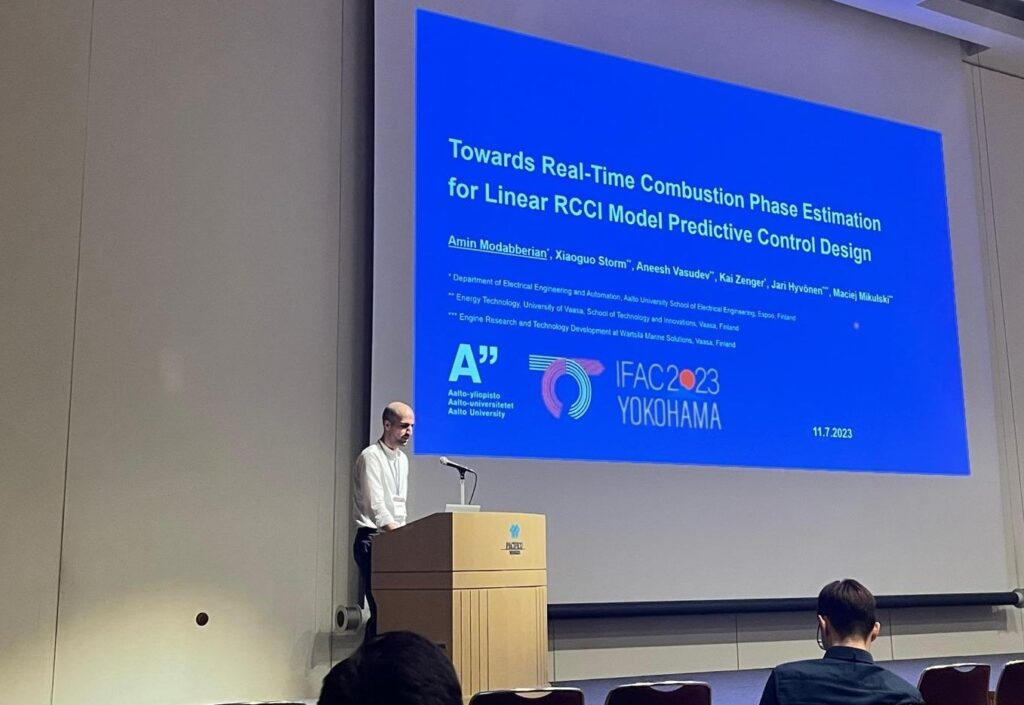Reactivity controlled compression ignition (RCCI) process has gained popularity within the research community due its ability to achieve ultra-low level emission levels. Fulfilling the demanding low emission regulation requires a sophisticated model-based control design. Although accurate modeling is always a recommended approach, in the control applications of RCCI process computational time is also an important factor to be considered. Thus, suitable assumptions have be made in order to develop a computationally fast model (in order of milliseconds), while maintaining a desired accuracy and predictivity.
Amin Modabberian et al., presented a linear physics-based parameter-varying (LPV) RCCI combustion model coupled with a predictive start-of-combustion (SOC) model (Modified knock integral model; MKIM) at the 22nd IFAC World Congress. The work was done in a close collaboration between Aalto University and University of Vaasa. The LPV model, commonly called the real-time model (RTM), was able to predict main combustion indicators, such as combustion phasing, heat-release rate, in-cylinder pressure and indicated mean effective pressure (IMEP) of an RCCI process. Additionally, the prediction of SOC for RTM was improved with the MKIM. The model achieved an accuracy below 5% of mean absolute percentage error once validated against the University of Vaasa Advanced Thermokinetic Multi-zone model (UVATZ) for all combustion indicators. The results confirmed the feasibility of the RTM to be used as the prediction model for the model predictive control (MPC). Thus, enabling the closed-loop simulations of RCCI combustion.
The research was carried out as part of Clean Propulsion Technologies project Work Package 2 “Virtual sensors and control”.




















